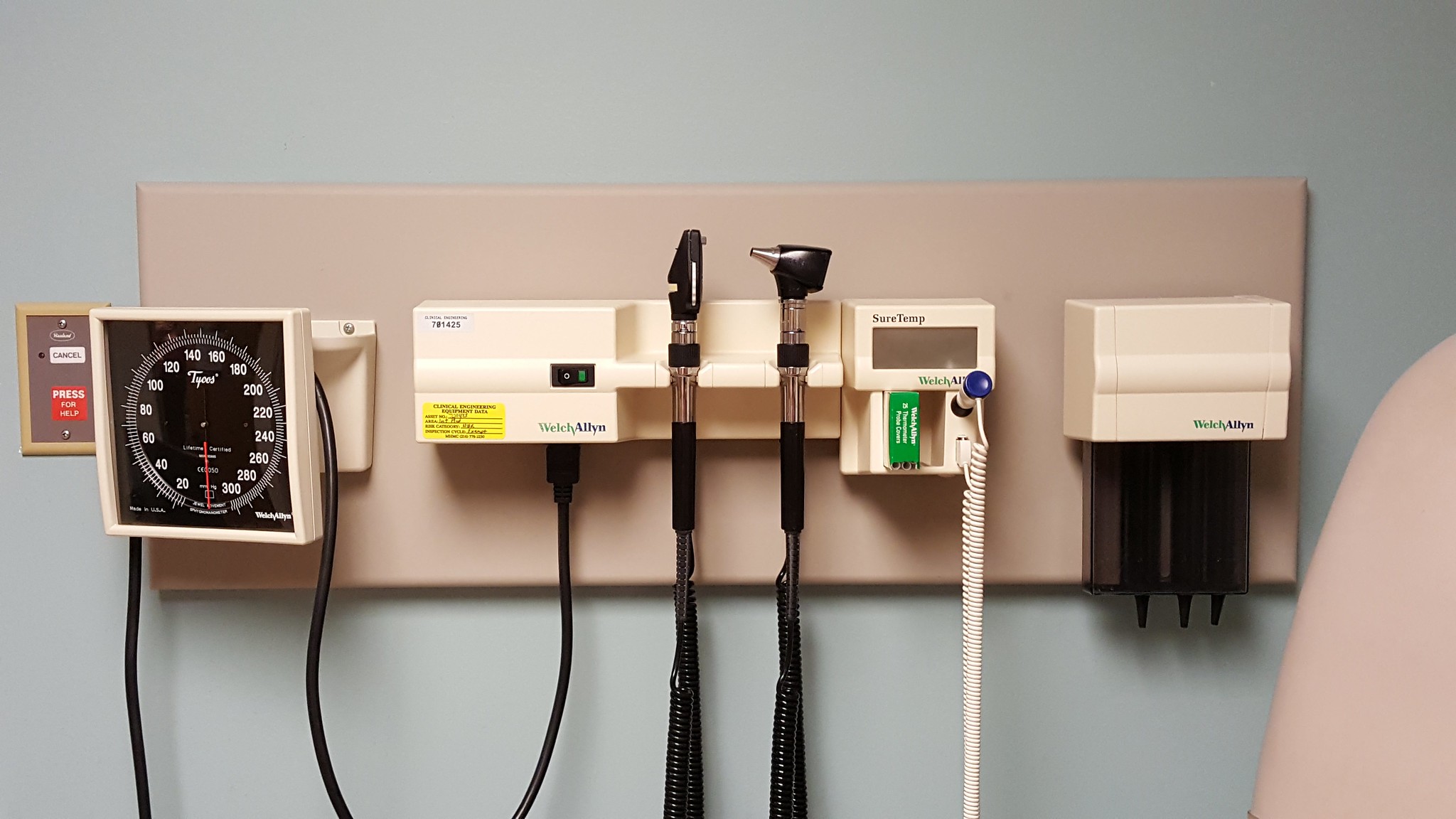Opening the heavy glass door, the immediate rush of cold air hit my face and cooled me off after walking in the hot beaming sun. I said hello to the office manager and made my way to the back office I’ve become all too familiar with these past two weeks. Just as I pulled my breakfast out and began to organize my notes, the first patient had arrived. Frantically, I grabbed my stethoscope and rushed to catch up to my attending who was already steps ahead. When we made it to the patient door, she turned to me and said go see this patient and we will discuss her case afterwards.
As I quietly opened the patient’s door, I saw a frail woman, sitting in the corner of the room. With her back turned away and her eyes towards the floor, I made my way to the open seat a few feet away. I proceeded to introduce myself, wanting to make sure that the patient was aware of my purpose in the room, but I received no reply. While making the smallest amount of noise, the patient brought her knees to her chest and closed her eyes. Now with her feet visible, I could see bruises and black soles, almost as if she walked barefoot to the appointment. With my palms starting to sweat, I looked around the room in search of something to help me connect to the patient. Seeing a small, beaded bracelet wrapped around her bruised hand, I asked her where she got it from. With some hesitation, she lifted her head up and stated it was from her son that she lives with and loves very much. With her slight smile and eyes finally locked on mine, I kept the conversation going and tried to ask her questions to see how we could help her today.
Throughout our conversation I noticed that the patient bounced from one topic to the next without fully answering a specific question. I could tell she was still frightened, so I tried my best to continue to communicate with her by using a soft tone and keeping myself eye level with her. However, the patient kept repeating that she was scared, cold and wanted to go home. She began to cry, saying that she was feeling overwhelmed and didn’t have the energy to talk anymore. I quietly moved a box of tissues closer to her and placed my hand on her shoulder. In that moment, I knew what she needed was support and an understanding that words couldn’t deliver. Within the next five minutes, the patient stated that she felt better and thanked me for sitting with her. After confirming that the patient was safe, I left the room to find my attending. I knew I needed to find her quickly.
With the broken history that I had, I started my oral presentation, and before I could finish the first sentence my attending tenderly tapped me on the shoulder. She filled in the gaps of the history that I was missing. Together, we realized that the patient’s medication she told me she was taking, was not medication that had been prescribed to her by any medical professional. My heart sank further, once we saw that she had been admitted to the hospital five times in the last 5 months for diabetic ketoacidosis.
Without missing a step, I followed my attending back into the patient’s room. We talked to her about her health, proper medication regimen and overall mental well-being. We wanted her to see a psychiatrist as soon as possible, but she refused to give a committed response. Instead, the patient was adamant about going home. With some hesitation, my attending agreed and asked her to come back in two weeks. Walking the patient out, I felt uneasy because even though I knew that we laid out a clear plan, I couldn’t help but wonder if she was going to be okay. Had we done enough?
To my pleasant surprise, the patient came back for her follow up appointment exactly two weeks later. The closed off and scared patient I had met previously now greeted me with a smile and a hug. My excitement quickly turned into confusion and sadness as she told me that she had been hearing voices in her head and had suicidal ideations within the last month. Realizing her outside appearance did not match her thoughts, I relayed this information to my attending. Understanding that she needed more intense care than what we, unfortunately, could not provide, she signed the paperwork to Baker Act the patient. Watching the police officers take the patient away screaming, I felt as if I betrayed her trust. I knew we had made the right decision, but it was hard to watch this outcome. Selfishly, I hoped she one day realized the steps we took were for her wellbeing and safety. It gave me great comfort to debrief the events that had just unfolded with my attending.
This encounter has reminded me of the importance of communication. While it is necessary to talk calmly and with a non-judgmental tone, sometimes the greatest power of communication comes from being a good listener. As physicians we may not be able to “fix” every patient ourselves, however communicating with other medical professionals can guide you in a positive direction to make the best decisions possible for our patients. The humility and thoughtfulness engraved within medicine is what will help me continue to learn and grow as a future physician. I am grateful for this experience and the lessons of patience, compassion and understanding that I took away from it.
Image credit: doctor’s office (CC BY-SA 2.0) by Tim Evanson

